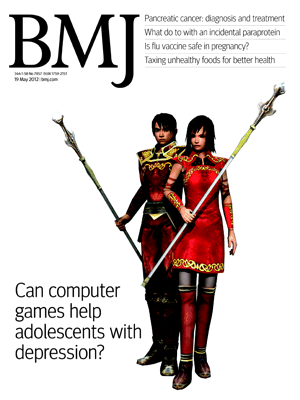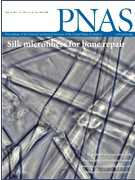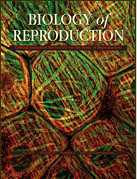BMJ:孕妇吃太多不利自己也不利宝宝
2012-05-24 黄堃 中国科技网
许多人常劝孕妇多吃一点,因为是“吃两个人的饭”,但英国一项最新研究说,孕妇吃得太多导致体重增长过快,会造成一些疾病风险上升,相反如果能合理控制饮食,反而更有利健康,并且不会对胎儿发育造成影响。 英国伦敦大学玛丽王后学院等机构的研究人员在新一期《英国医学杂志》上发表报告说,他们综合分析了过去数十项相关研究中7000多名孕妇的健康资料后得出了上述结论。 研究人员说,孕妇怀孕期间体重一般会增加,但如
许多人常劝孕妇多吃一点,因为是“吃两个人的饭”,但英国一项最新研究说,孕妇吃得太多导致体重增长过快,会造成一些疾病风险上升,相反如果能合理控制饮食,反而更有利健康,并且不会对胎儿发育造成影响。
英国伦敦大学玛丽王后学院等机构的研究人员在新一期《英国医学杂志》上发表报告说,他们综合分析了过去数十项相关研究中7000多名孕妇的健康资料后得出了上述结论。
研究人员说,孕妇怀孕期间体重一般会增加,但如果增加过多就会带来糖尿病、高血压等疾病风险。要减少体重增加的幅度,合理控制饮食是个好方法。
相应的健康好处是,那些合理控制饮食的孕妇,与其他孕妇相比出现先兆子痫的风险要低33%(先兆子痫是一种可危及孕妇生命的严重孕期并发症)。此外,她们在妊娠期间患糖尿病的风险要低60%,出现高血压的风险要低70%,早产的风险也要低32%。
关键是,合理节食不会对胎儿造成影响。这项研究显示,那些合理节食的孕妇所产婴儿的体重与其他孕妇相比没有明显变化。不过研究人员也强调说,这里所谓的节食并不是指那种为减肥而进行的过度节食,而是指在有专业医生监护下,合理减少热量摄入程度的饮食控制。

doi: 10.1136/bmj.e2088
PMC:
PMID:
Effects of interventions in pregnancy on maternal weight and obstetric outcomes: meta-analysis of randomised evidence
S Thangaratinam, E Rogozińska, K Jolly,S Glinkowski, T Roseboom, J W Tomlinson, R Kunz, professor, B W Mol, A Coomarasamy, K S Khan
Objective To evaluate the effects of dietary and lifestyle interventions in pregnancy on maternal and fetal weight and to quantify the effects of these interventions on obstetric outcomes. Design Systematic review and meta-analysis. Data sources Major databases from inception to January 2012 without language restrictions. Study selection Randomised controlled trials that evaluated any dietary or lifestyle interventions with potential to influence maternal weight during pregnancy and outcomes of pregnancy. Data synthesis Results summarised as relative risks for dichotomous data and mean differences for continuous data. Results We identified 44 relevant randomised controlled trials (7278 women) evaluating three categories of interventions: diet, physical activity, and a mixed approach. Overall, there was 1.42 kg reduction (95% confidence interval 0.95 to 1.89 kg) in gestational weight gain with any intervention compared with control. With all interventions combined, there were no significant differences in birth weight (mean difference −50 g, −100 to 0 g) and the incidence of large for gestational age (relative risk 0.85, 0.66 to 1.09) or small for gestational age (1.00, 0.78 to 1.28) babies between the groups, though by itself physical activity was associated with reduced birth weight (mean difference −60 g, −120 to −10 g). Interventions were associated with a reduced the risk of pre-eclampsia (0.74, 0.60 to 0.92) and shoulder dystocia (0.39, 0.22 to 0.70), with no significant effect on other critically important outcomes. Dietary intervention resulted in the largest reduction in maternal gestational weight gain (3.84 kg, 2.45 to 5.22 kg), with improved pregnancy outcomes compared with other interventions. The overall evidence rating was low to very low for important outcomes such as pre-eclampsia, gestational diabetes, gestational hypertension, and preterm delivery. Conclusions Dietary and lifestyle interventions in pregnancy can reduce maternal gestational weight gain and improve outcomes for both mother and baby. Among the interventions, those based on diet are the most effective and are associated with reductions in maternal gestational weight gain and improved obstetric outcomes.
本网站所有内容来源注明为“梅斯医学”或“MedSci原创”的文字、图片和音视频资料,版权均属于梅斯医学所有。非经授权,任何媒体、网站或个人不得转载,授权转载时须注明来源为“梅斯医学”。其它来源的文章系转载文章,或“梅斯号”自媒体发布的文章,仅系出于传递更多信息之目的,本站仅负责审核内容合规,其内容不代表本站立场,本站不负责内容的准确性和版权。如果存在侵权、或不希望被转载的媒体或个人可与我们联系,我们将立即进行删除处理。
在此留言














#BMJ#
63
#宝宝#
81